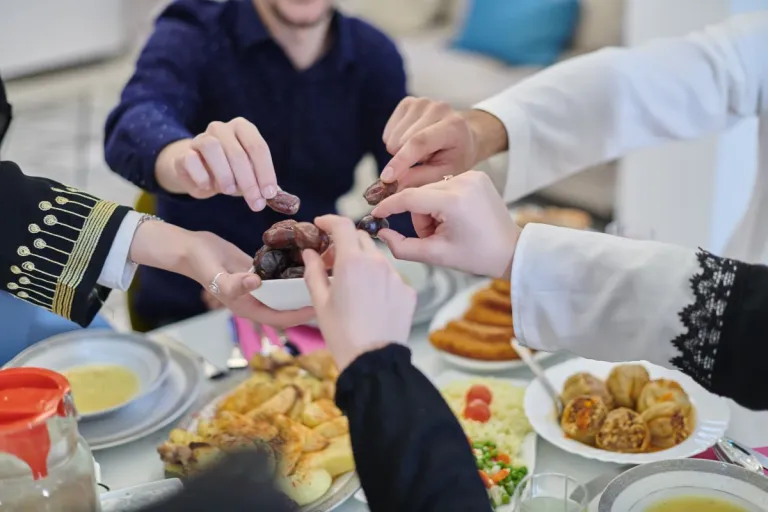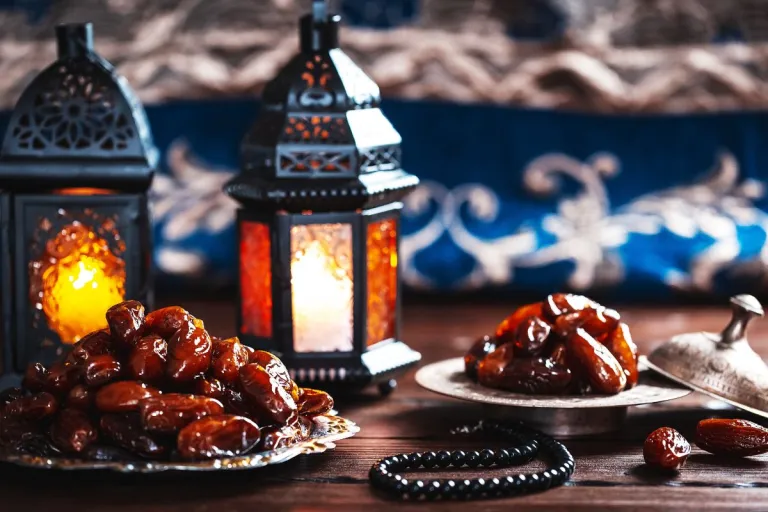Not just Boracay...
Muslim Traveller’s Guide to Preparing For a Healthy Ramadan 2025

Ramadan is just around the corner, and for many travellers, this means adjusting their routines to accommodate the dawn-to-dusk fast. Expected to begin on 1 Mar 2025, depending on the moon sighting, this sacred month is a time of spiritual reflection, self-discipline, and devotion. But it’s also a time when food habits take a dramatic shift, which can impact energy levels, hydration, and overall well-being.
For those planning to travel during Ramadan or simply looking to maintain their health while fasting, a little preparation goes a long way. According to Dr Lama Dalloul in Alarabiya News, a clinical dietitian at Bioniq Middle East, easing into the fasting routine beforehand and making mindful dietary choices can help ensure a smooth and healthy experience. Here’s a guide on how to get Ramadan-ready without feeling drained or exhausted.
Also read: Ultimate Guide to Ramadan Bazaar at Kampong Gelam 2025: Dates, Events, Food, and More
Ease into the fasting schedule
 Image credit: Oksana Vejus | Canva Pro
Image credit: Oksana Vejus | Canva Pro
Jumping straight into fasting can be a shock to the system, especially for those who are used to eating and drinking throughout the day. To make the transition smoother, Dr. Dalloul suggests gradually adjusting eating habits a few days before Ramadan begins. One way to do this is by shortening the daily eating window to mimic fasting hours. This allows the body to get accustomed to going longer periods without food.
For caffeine lovers, cutting back on coffee and tea gradually can help prevent withdrawal symptoms like headaches and irritability. Since caffeine can contribute to dehydration, reducing intake ahead of time can make fasting much more manageable.
Common pitfalls to avoid while fasting
 Image credit: .shock | Canva Pro
Image credit: .shock | Canva Pro
Many people make avoidable dietary mistakes during Ramadan, which can lead to fatigue, dehydration, and sluggishness. Here are some of the most common missteps and how to fix them:
1. Skipping Suhoor (pre-dawn meal)
While it may be tempting to catch a few extra minutes of sleep and skip Suhoor, doing so can leave the body drained and dehydrated throughout the day. Dr. Dalloul emphasizes that Suhoor is a crucial meal, as it provides the necessary fuel to sustain energy levels. A well-balanced Suhoor should include:
Fibre-rich foods like whole grains, oats, and fruits that provide lasting energy.
Proteins such as eggs, yoghurt, or beans that keep hunger at bay.
Healthy fats from sources like nuts, avocados, or olive oil that help with satiety.
2. Not drinking enough water
Dehydration is one of the biggest challenges of fasting, and many people don’t drink enough water between Iftar (the evening meal) and Suhoor. The World Health Organization (WHO) recommends drinking at least 10 glasses of water during non-fasting hours to stay properly hydrated.
Tips for better hydration:
Sip water gradually between meals rather than chugging large amounts at once.
Incorporate hydrating foods such as cucumbers, watermelon, and soups.
Limit salty and processed foods, which can increase thirst during the day.
3. Overeating unhealthy foods at Iftar
After a long day of fasting, it’s tempting to indulge in deep-fried treats and sugary desserts. However, consuming too much fried, salty, or sweet food can cause bloating, sluggishness, and energy crashes.
Instead, a balanced Iftar should include:
Complex carbohydrates like brown rice or quinoa for steady energy.
Lean proteins such as grilled chicken or fish for muscle repair.
Plenty of vegetables to provide essential vitamins and minerals.
While traditional Ramadan sweets like Kunafa and Baklava are delicious, they’re often loaded with sugar syrup. Enjoying them in moderation can prevent unnecessary sugar spikes and crashes.
Why does a pre-Ramadan health check matter?
 Image credit: levgenii meyer | Canva Pro
Image credit: levgenii meyer | Canva Pro
For those with nutrient deficiencies, fasting may exacerbate the problem. Dr Dalloul recommends a pre-Ramadan health assessment to check for any vitamin or mineral deficiencies.
During fasting, the body conserves energy, which means fewer nutrients may be consumed than usual. Supplements tailored to individual needs can help fill any nutritional gaps, ensuring optimal strength and vitality throughout the month. This is especially important for travellers who may not have easy access to home-cooked, nutrient-dense meals.
Final thoughts: A healthy and energised Ramadan
 Image credit: Abdullah Ghatasheh | Canva Pro
Image credit: Abdullah Ghatasheh | Canva Pro
Also read: Saudi Arabia Bans Children from Hajj 2025: What Muslim Pilgrims Need to Know
Ramadan is a special time of reflection, gratitude, and community. By taking a mindful approach to nutrition and hydration, travellers and fasting individuals can stay strong, energised, and refreshed throughout the month. With a bit of planning, Ramadan can be both a physically rejuvenating and spiritually enriching experience—no matter where in the world one may be.
So whether exploring a new city or staying close to home, prioritising health during Ramadan ensures that fasting is a rewarding and revitalising journey rather than a draining one.
Published at
About Author
Aimi Zulkiflee
Subscribe our Newsletter
Get our weekly tips and travel news!
Recommended Articles
10 Best Halal-Friendly Destinations in The Philippines for Muslim Travellers 10 Best Places for Muslim Travellers to See Tulip Festivals in 2025 Fun Fact: Tulips didn’t actually come from the Netherlands but Türkiye!
10 Cafes in Johor Bahru You Have To Go To Head on to someplace new to taste something unfamiliar and fall in love! There is so many new places to explore, why not start with these?
10 Halal Anime Food Guide for Muslim Travellers in Japan Muslim-friendly versions of popular anime dishes across Japan!
Top 10 Popular Muslim-Friendly Destinations to Visit in 2025 Our schedules are packed, buddies!
Latest Articles
Halal Honeymoon in Sarawak: 10 Romantic Muslim-Friendly Activities Romance, rainforests, and halal adventures await in Sarawak!
5 Muslim-Friendly Theme Parks in Johor Bahru (JB) for Singaporeans to Visit Consider that weekend family trip to JB locked in!
Halal Food Guide: 6 Muslim-Friendly Restaurants at Universal Studios Japan You can savour the halal butter beer here!
MySawasdee Train: A Scenic, Muslim-Friendly Journey From Penang to Hat Yai to Launch in Q3 2025 MySawasdee train is set to launch as regular service In Q3 of 2025!
Why Is The Floor of Masjid al-Haram Always Cool – Even in Scorching Heat? Did you know, Thassos marble is so white that it reflects sunlight easily!

